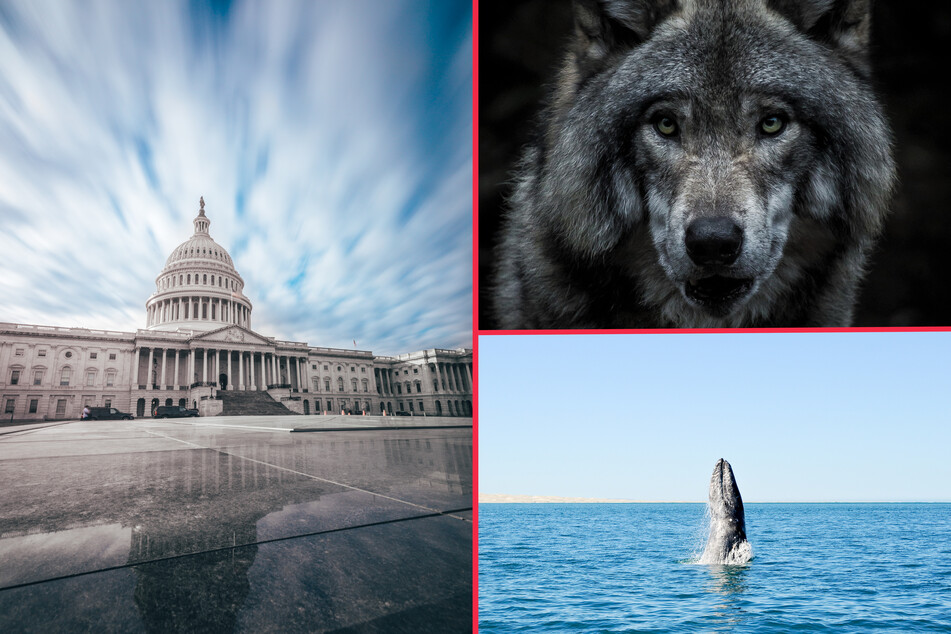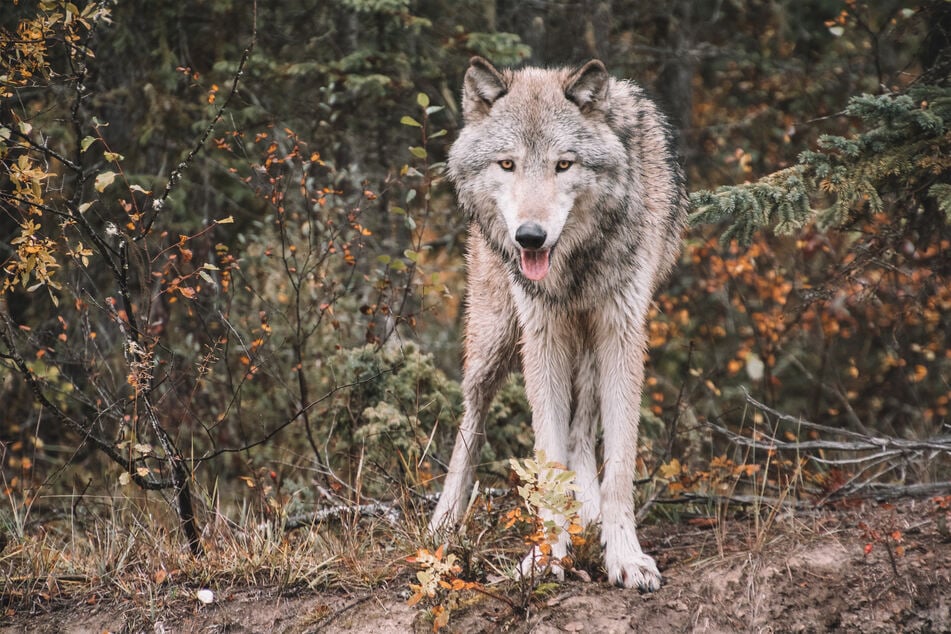Republicans strip life-saving protections from country's most endangered species
Washington DC - Major environmental protections introduced by the Endangered Species Act (ESA) in 1973 have been stripped back in amendments made to the 2023-2024 appropriations bill, threatening native wildlife.

In a report released in January by the Center for Biological Diversity, the organization identified what it sees as the "largest number of anti-wildlife poison pill riders in the 50-year history of the Endangered Species Act."
The damage is being wreaked by what the report authors term the "weaponizing" of the annual appropriations bill, which threatened to shut down Congress until stop-gap measures were approved earlier this week.
Out of the 27 so-called "poison-pill riders" (amendments designed to weaken the effectiveness of a given bill) introduced to the report, 26 were introduced by Republican members while only one was added by Senate Democrats.
Country's most endangered species at risk from ESA amendments

Particular amendments to the spending bill will reduce protections provided to specific species, including Rice's whales and North Atlantic right whales, both of which the National Oceanic and Atmospheric Administration have classified as some of "the most endangered whales in the world."
More specifically, the riders target the whale species six times. Those six amendments include, but are not limited to, the blocking of proposed changes that would protect critical habitat and the removal of provisions to introduce vessel speed restrictions in whale habitat.
Changes introduced do not exclusively target marine life, either. Amendments will also block funding to conservation projects and have seen several species delisted from the ESA.
One such animal is the gray wolf, which has been reintroduced to Colorado in recent years, but still exists in concerningly low numbers right across the continental United States. The hit comes after decades of research and conservation work saw wolf populations "slowly rebound" in recent years.
The rider will not only make it harder to introduce government-funded conservation work on the gray wolf population but will "effectively strip most gray wolves of ESA protections," Common Dreams reports.
Another change would similarly end protections for grizzly bears in the Greater Yellowstone Ecosystem. The bigger kick in the head, though, is that the riders would also prevent any prospective court from intervening.
"These heartless attacks would strip away lifesaving protections from our most imperiled creatures, from wolves to whales to freshwater mussels," Senior Policy Specialist and the report's main author Stephanie Kurose wrote.
"If passed, these bills would put multiple species on a direct path to extinction.”

Changes to Endangered Species protections not guaranteed, despite government averting shutdown
While the Senate managed to avert a government shutdown with stop-gap measures, the funding bill is still stuck in limbo, with exact amendments anything but finalized.
As a result, concerns expressed by environmental groups can potentially be addressed in future amendments before the impending March 8 deadline.
"While the majority of riders are not enacted into law, the few that slip through the cracks have had horrific consequences for wildlife," wrote Kurose, who then went on to describe a 2011 rider that directly led to "the merciless killing of wolves" in the Rocky Mountains.
With brutal changes to the ESA on the table, activists and researchers are also concerned about the continued intensification of what they term a "biological annihilation" that sees vertebrate extinction rates 35 times higher than they'd be without human involvement. In 2023 alone, 21 US species were declared extinct, the Guardian reports.
"We are in the sixth mass extinction event," wrote Gerardo Ceballos and Paul R. Ehrlich in a research article published in the Proceedings of the National Academy of Sciences in July 2023. "Unlike the previous five, this one is caused by the overgrowth of a single species, Homo sapiens."
Seeing as the riders introduced to the appropriation bill count a total of 27, the most to have ever attacked the ESA since its establishment more than fifty years ago, critics believe that it's unlikely that Republican members are troubled by the unfolding extinction crisis.
In a blistering attack on members of Congress, the Center for Biological Diversity concluded the executive summary of their report by accusing them of "placing short-term benefits to special interests and political benefactors before the integrity of our nation’s natural heritage."
"This not only puts individual species at serious risk but also threatens to undermine the
Endangered Species Act itself – and ultimately, our ability to stop extinction in the United States."
Cover photo: Collage: Unsplash/Andy Feliciotti/Marc-Olivier Jodoin & IMAGO/Panthermedia



